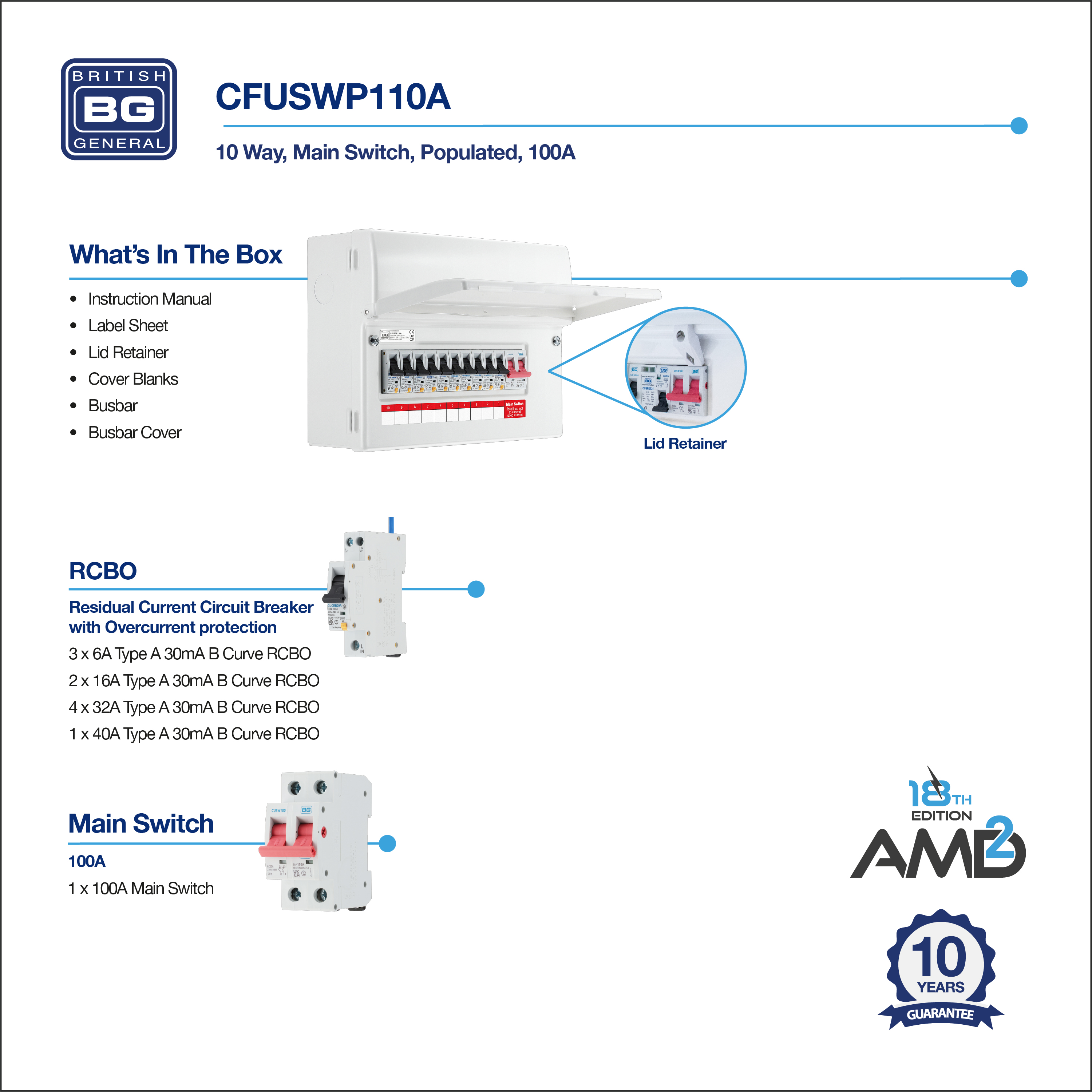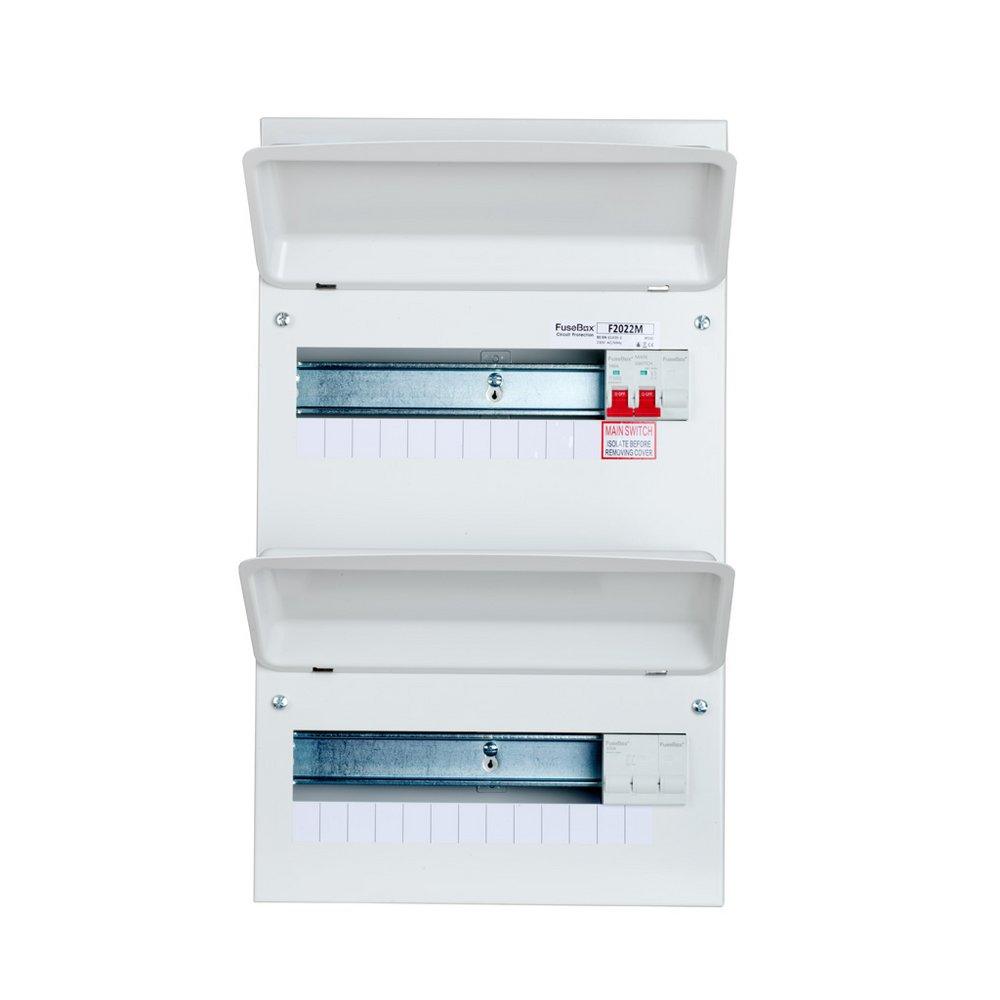Top Features to Search For in High-Quality RCBO CONSUMER UNITS
Top Features to Search For in High-Quality RCBO CONSUMER UNITS
Blog Article
The Function of Consumer Systems in Efficient Energy Management Solution
Consumer devices are important to effective energy administration systems, offering as the main distribution factors for electrical power within frameworks. By integrating breaker, they secure circuits from potential overloads, therefore keeping security and protecting against comprehensive failures. The development of clever innovations has additionally boosted their performance, allowing for real-time data monitoring and nuanced power intake analysis. This integration not just optimizes energy use but also helps with the incorporation of renewable resource sources, thus advertising sustainable techniques. Exactly how, after that, do these developments convert to tangible advantages in daily energy administration?
Recognizing Consumer Units

Recognizing the role of consumer devices starts with recognizing their vital feature in securing electric systems. By isolating faults within specific circuits, consumer units protect against prevalent blackouts and prospective fire risks. This isolation is attained with the use of circuit breakers that trip or integrates that impact when a mistake is detected, thereby reducing off the electrical flow to the impacted circuit.
Additionally, customer units assist in the organized circulation of power, boosting the efficiency of power use. They enable the organized administration of electrical lots, which can be especially essential in commercial and commercial setups where demand can fluctuate significantly. Correctly kept consumer systems add to the durability of electrical systems and aid in minimizing downtime caused by electrical failures, inevitably supporting the smooth operation of energy-dependent centers.
Smart Technologies Assimilation

An essential benefit of smart customer systems is their ability to utilize progressed formulas and artificial intelligence for predictive analytics. This permits for preemptive adjustments based upon usage patterns, weather condition forecasts, and other variables, significantly raising overall performance. Clever consumer units help with need feedback programs, where power usage can be dynamically changed throughout optimal periods to support the grid and reduce expenses.
The assimilation of renewable resource resources, such as solar and wind, is additionally streamlined with wise customer units. By intelligently managing the intermittency of these resources, these systems ensure a dependable and balanced energy supply. Additionally, smart consumer units enhance user engagement by offering comprehensive insights and push-button control capacities via mobile applications, fostering a much more aggressive approach to power conservation and sustainability.
Tracking Power Consumption
Structure on the abilities of smart technologies integration, keeping an eye on energy consumption becomes a critical emphasis within energy management systems. Effective surveillance works as the structure for determining energy ineffectiveness and implementing corrective measures. By leveraging innovative metering framework (AMI), real-time information on energy usage can be collected at granular levels, providing important understandings into intake patterns and peak need periods. This see this site data-centric strategy allows both consumers and energy managers to make informed choices focused on decreasing waste and enhancing total effectiveness.
Smart meters and Web of Points (IoT) devices play an essential function in this surveillance procedure. These tools can track energy use in real-time, transferring information to centralized systems for analysis.
The combination of these modern technologies not just empowers consumers with thorough details about their power use but additionally sustains utility providers in managing load distribution more effectively. Eventually, accurate and continuous tracking is crucial for achieving energy efficiency, expense financial savings, and sustainability objectives within energy monitoring systems.
Optimizing Device Usage

One effective method involves determining top and off-peak hours to move energy-intensive tasks, such as washing or dishwashing, to times when energy demand is lower. This not just minimizes pressure on the grid however also maximizes reduced energy tariffs. Furthermore, integrating equipment knowing formulas enables anticipating maintenance, making certain home appliances operate at ideal effectiveness and extending their life expectancy.
Power management systems can likewise integrate user-specific choices and actions to customize home appliance use schedules. Wise lights systems can readjust brightness based on tenancy and all-natural light availability, while HVAC systems can keep convenience degrees without excessive energy usage.
Promoting Sustainability
Advertising sustainability within power administration systems entails not only improving efficiency however additionally promoting eco accountable techniques. Consumer systems are essential to this procedure, as they supply real-time data and control devices that allow customers to check and minimize their power intake. By leveraging advanced innovations, customer devices can identify energy-saving chances and promote the integration of renewable resource resources like solar and wind power.
One vital facet of advertising sustainability is educating consumers on the benefits of responsible energy usage. Via in-depth understandings provided by consumer systems, customers can make enlightened decisions that reduce their carbon impact. These devices can suggest optimum times for operating high-energy home appliances based on grid need and sustainable energy schedule, therefore reducing dependence on fossil gas.
In addition, customer devices sustain the fostering of wise grid innovations, which improve the general effectiveness and dependability of power circulation. By making it possible for two-way communication between customers and utility providers, these systems can dynamically adapt to power needs, lowering waste and promoting making use of sustainable energy techniques.
Conclusion
Consumer systems, as essential parts of power monitoring systems, dramatically improve electrical safety and security and effectiveness within buildings via circuit security and smart technology assimilation. Real-time data monitoring and evaluation helped with by these units enhance energy intake and home appliance use. Furthermore, the incorporation of renewable important site resource sources advertises sustainable techniques, contributing to lowered general energy usage and lower carbon impacts. Consequently, customer systems play a crucial function in advancing both power performance and ecological sustainability.
Breakthroughs in smart technologies have reinvented the capacities of energy management systems, especially with the assimilation of clever consumer units.Building on the abilities of clever modern technologies integration, keeping an eye on power consumption becomes an important emphasis within power management systems.Efficient device usage optimization is a crucial element of energy management systems, aiming to enhance performance and lower unneeded energy consumption.Customer units, as essential components of power monitoring systems, dramatically boost electric safety and security and effectiveness within buildings through circuit protection and clever technology assimilation. In addition, the consolidation of sustainable energy resources advertises sustainable practices, adding to minimized general energy consumption and reduced carbon impacts.
Report this page